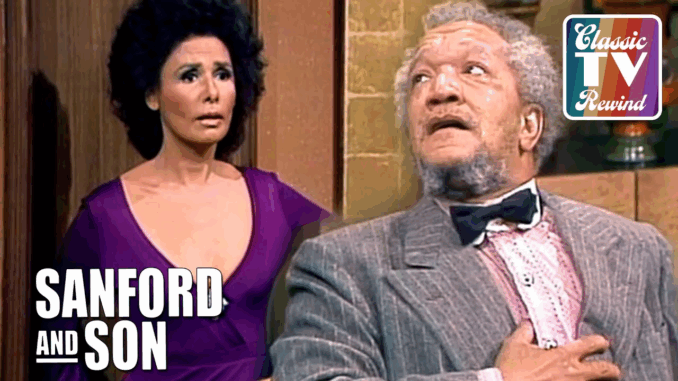
For countless fans, Fred G. Sanford’s dramatic cries of “I’m coming to join ya, Elizabeth!” followed by a clutching of his chest, were among the most reliable comedic bits on “Sanford and Son.” These “big ones,” as he called his fake heart attacks, were his go-to maneuver to manipulate his son Lamont or escape an unwanted task. But what if, beneath the theatricality, there was a deeper, unrevealed layer to Fred’s hypochondria? Could the show have been subtly hinting at a genuine, underlying health anxiety, or even a real medical condition, that the audience never fully grasped?
While played for laughs, Fred’s frequent self-diagnoses and anxieties about his health often bordered on the obsessive. He was constantly worried about his well-being, obsessed with avoiding stress, and quick to attribute any minor ailment to a severe, life-threatening condition. This persistent preoccupation, beyond mere comedic exaggeration, could be interpreted through a more modern lens as a form of health anxiety or hypochondriasis. In an era where mental health discussions were far less common in sitcoms, “Sanford and Son” might have inadvertently (or perhaps intentionally, through Redd Foxx’s nuanced performance) touched upon a very real psychological struggle.
Furthermore, consider the social context of the time. For many working-class individuals, particularly in minority communities, access to quality healthcare was limited, and medical conditions often went undiagnosed or untreated. Fred’s constant worry, while comedic, might have resonated with viewers facing similar anxieties about their own health in a system that often left them feeling vulnerable. His “fake” heart attacks could be seen as a coping mechanism, a dramatic outlet for very real fears about mortality and illness.

The genius of Redd Foxx was his ability to imbue Fred with such depth that even his most outrageous antics felt grounded in a relatable human experience. He wasn’t just a caricature; he was a man grappling with aging, loss (Elizabeth’s absence was a constant backdrop), and the uncertainties of life, often manifesting in his exaggerated health concerns. So, the next time you see Fred clutching his chest, ask yourself: was it just a gag, or was it a brilliantly subtle hint at a deeper medical mystery the show never explicitly solved? The laughs might have been real, but perhaps the underlying anxiety was too.